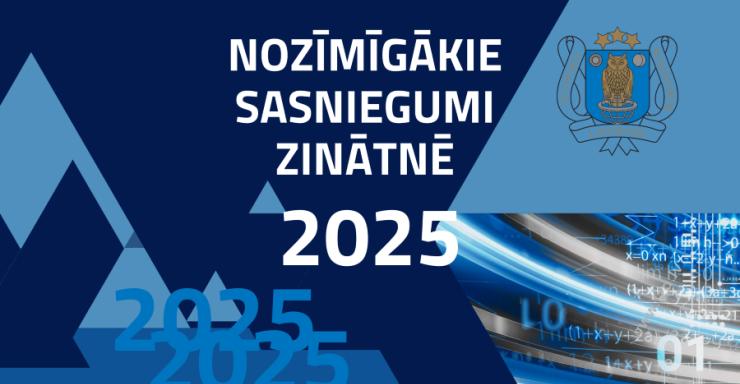Writing a doctoral thesis or dissertation is not just a technical task – it is an opportunity to explore, overcome challenges, and contribute to science. A structured, logically developed, and engagingly presented study not only helps researchers better understand their own work but also enables them to communicate it more effectively within the academic community and to a broader audience. The science communication platform researchLatvia, developed by the Ministry of Education and Science, has compiled key principles and practical tips to help researchers prepare a clear, comprehensible, and convincing scientific work.

1. Clearly Defined Goals
Before diving into research, it is essential to establish both long-term and short-term goals. It is helpful to ask yourself the following questions:
- What is the research question I aim to address?
- What steps will I take to answer it?
- How will I define the results?
2. Literature Review – Understanding the Context
Serious scientific work requires familiarity with existing research. In the literature review:
- Identify key theories and research directions.
- Recognize gaps and unresolved questions in the field.
- Demonstrate how your research will contribute to existing scientific knowledge.
3. Developing a Clear Methodology
The foundation of research lies in its methodology:
- A detailed description of the methods and approaches used.
- Justification for the choice of methods.
- Ensuring transparency and reproducibility in research approaches.
4. Systematic Presentation of Results
Once the data has been collected, it must be presented in a structured manner:
- Organizing results in a logical sequence.
- Using visualizations such as charts, tables, and images.
- Providing analysis and interpretation based on evidence.
5. Analyzing and Connecting Your Findings
Deeper insights can be achieved by linking your results to theories and previous research:
- Establishing connections between collected data and existing studies.
- Drawing conclusions and offering new perspectives.
6. Discussion and Integration into the Broader Academic Discourse
The impact of a study is determined by how well it integrates into and contributes to scientific discussions:
- Comparing your conclusions with the work of other researchers.
- Demonstrating how your research enriches or challenges existing theories.
7. Concluding the Study with Strong Conclusions
A well-structured scientific work has a logical conclusion:
- Highlighting the most significant aspects of your research.
- Suggesting directions for future studies.
For example, in 2019, Dr. sc. ing. Andrejs Krauklis obtained a doctoral degree in engineering sciences from the Norwegian University of Science and Technology. Currently, he is a senior expert at the Ministry of Education and Science's Smart Specialization Strategy (RIS3) unit, focusing on smart materials, technologies, and engineering systems.
"The journey to completing my PhD was full of challenges, but a structured approach and a strong team were key factors. Writing the dissertation required a lot of work and patience, but a systematic approach proved crucial—lists, algorithms, and flowcharts helped structure the thesis. The team and collaboration with colleagues also played an important role, especially in the project focused on composite material modeling and testing," shares A. Krauklis about his experience.
"As a chemist and materials scientist, I successfully collaborated with another engineering PhD student, which resulted in several joint publications and a deeper understanding of material properties at different levels. This once again confirms that the PhD process requires not only an individual approach but also a strong scientific environment and collaboration," states Dr. sc. ing. A. Krauklis.
With the right approach and perseverance, scientific work can be not only productive but also exciting.
When developing a doctoral thesis or dissertation, it is essential to maintain regular communication with one’s supervisor and colleagues, as constructive dialogue fosters idea development and helps solve challenges that arise in the research process. Effective time management and a clear work strategy are fundamental prerequisites for high-quality research.
In addition to individual work, the support of the scientific community plays a significant role – networking and active participation in conferences, seminars, international projects, and activities such as COST (European Cooperation in Science and Technology) program actions allow researchers to broaden their horizons, exchange views, and gain inspiration for future research. Research is a continuous learning process in which critical thinking and openness to new perspectives are essential. Constructive criticism should not be feared – it helps refine and improve the work, making it more precise and scientifically significant.
Science is not just about facts and data – it is a creative and engaging process that drives innovation and contributes to societal development and well-being. Therefore, regardless of the challenges researchers face, it is important to maintain enthusiasm and curiosity, as these qualities drive science forward and shape future discoveries.


